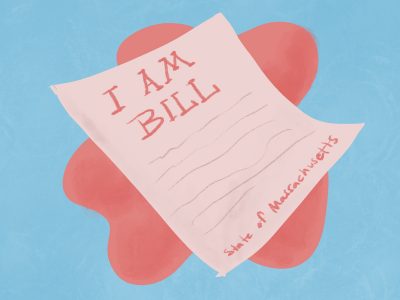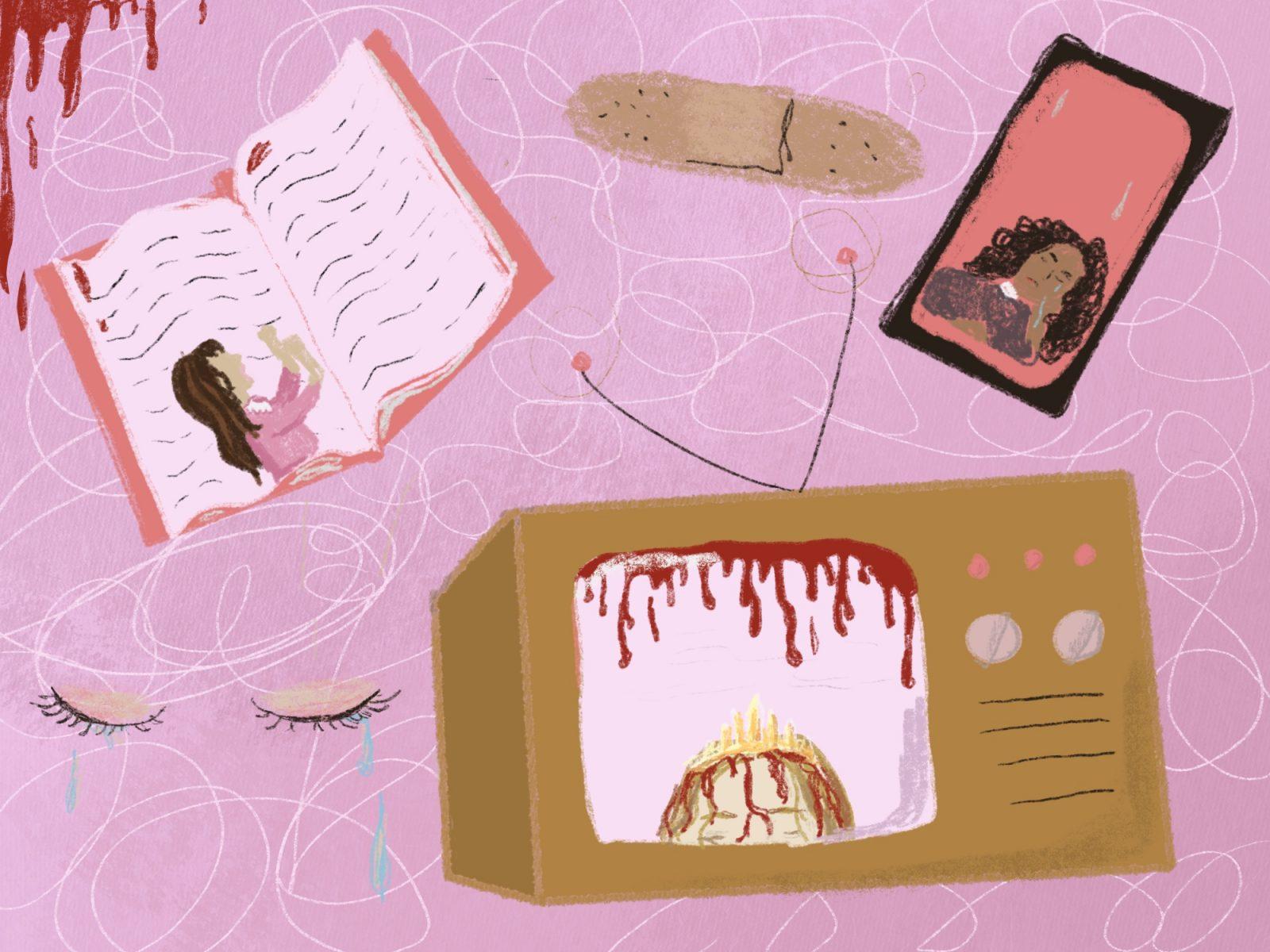Having a period is a healthy biological function of the human body. Similar to how our bodies undergo a cycle of eating and processing nutrients, some undergo a monthly shedding of the uterine lining. These are facts.

Food is largely considered a necessity and human right — groceries aren’t taxed in Massachusetts, and the government has some programs to provide food for those who can’t afford it. Menstruation, despite its natural occurrence and prevalence, is not afforded the same right.
Period poverty describes a lack of access to sanitary products and spaces. An estimated 22 million people in America experience period poverty. Ending period poverty is the goal of menstrual equity, a movement which strives to provide menstrual products, sanitary spaces and reproductive education available to everyone.
Of course, a primary goal of menstrual equity is ensuring pads and tampons are accessible, but it’s also about bridging disparities in education, socioeconomics, health, and gender.
A lack of access to period products has potentially life-threatening repercussions. If someone doesn’t have a reliable supply of pads or tampons, they may use a product longer than is recommended or turn to unsanitary alternatives. In other cases, some don’t have access to a safe, sanitary space to wash their hands or properly dispose of used products.
In addition to menstrual products, it’s essential to acknowledge the specific needs of individuals who experience incontinence. Many people, particularly women, rely on incontinence pads to manage urinary leaks, which can be a daily struggle. These pads, designed to provide comfort and protection, play a crucial role in maintaining the dignity and well-being of those affected. Ensuring access to both menstrual and Incontinence Pads Women is a significant step toward comprehensive health equity, addressing a broader spectrum of needs that often go unnoticed. Furthermore, education and awareness are key components of achieving menstrual equity.
These examples of period poverty can lead to urinary tract infections, bacterial infections, dermatitis and toxic shock syndrome. And the risks are not only physical — from a study conducted in France, almost half of the subjects who experienced period poverty reported significant psychological symptoms. Research has also linked reproductive education to health outcomes — women with less knowledge of menstrual hygiene had a greater tendency to develop urinary tract infections. Less menstrual education has been associated with increased negative attitudes about periods.
And it doesn’t end with just access to products. Those who can afford to buy menstrual resources have to bear the “pink tax” — the tax that the government imposes on pads, tampons and other sanitary goods. In other words, these essential items are made even more expensive, and their sale profits the government.
There are no federal programs to help acquire period products. Food stamps and other federal aid does not count towards buying pads or tampons. The pink tax is enforced in 21 states, with some as high as 7%.
Here at Boston University, a number of student organizations are centered around menstrual equity, such as PERIOD, BU School of Public Health’s Period Project, Students for Reproductive Freedom and Sisters United. These organizations conduct period product drives, educational events and contraceptive distribution. If you’re in need of menstrual products, the BU Center for Gender, Sexuality and Activism offers free tampons and pads.
Massachusetts does not tax period products, but that doesn’t mean we’ve achieved menstrual equity. Innumerable residents don’t have reliable access to products, reproductive education and sanitary spaces.
The Massachusetts Menstrual Equity Coalition (MME) is organizing at the state-wide level to curb period poverty. Their momentous initiative is called the I AM Bill: An Act to Increase Access to Disposable Menstrual Products in Prisons, Homeless Shelters and Public Schools. As the name suggests, this is legislation that would legally mandate free menstrual products in prisons, homeless shelters and schools in Massachusetts. Similar bills have been passed in 23 states.
In prisons, super tampons and pads are some of the most expensive items available for purchase at the commissary. These prices are exorbitant, especially considering that Massachusetts prisoners are paid as little as 14 cents an hour. It could take days of work to purchase menstrual supplies. The scarcity of this necessary resource is a factor in reported cases — and countless non-reported ones — of corrections officers distributing menstrual products in exchange for sexual acts.
There are over 20,000 unhoused people in Massachusetts, a number which has only increased since the pandemic, along with the price of menstrual products. Shelters have reported that menstrual products are among the least donated, with 25% of shelters unable to provide any products whatsoever.
One in seven children in this state live in poverty and struggle to pay for menstrual products. Their lack of access to these resources hinders their education. Over half of Massachusetts school nurses have witnessed students forced to miss class to get menstrual products.
You — yes, you — can support the I AM Bill right now — yes, at this very moment. It takes less than 10 minutes to draft an email of support to the legislators who’ll be deciding this bill’s fate. Don’t be shy to write to Massachusetts legislators even if you’re not from Massachusetts. As a student living in Boston, you have a Boston address and count as a constituent. It is quite literally their job to listen to you.
So, how can you help? The bill has passed in the Senate, so you can write to senators and thank them for that. It’s important to show that their constituents are paying attention to their legislative actions.
The bill has yet to be voted on in the House of Representatives, so this is a crucial time to write to representatives and implore them to pass the I AM Bill. Email templates, period poverty research, legislator information and much more is available on the MME’s website.
Menstrual equity is a concerted mission that spans education, public health, housing, economic equity, prisoner rights, LGBT+ and women’s rights and, ultimately, human rights. If it doesn’t affect you, it affects someone you know. An incalculable amount of people will be positively impacted by the I AM Bill, and advocating to have our basic needs met is for the sake of our collective safety, dignity, community and prosperity.






















































































































